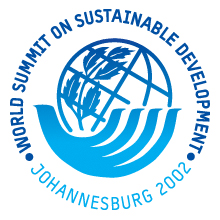CGIAR Challenge Program: Biofortified Crops for Improved Human Nutrition
Description
Description
The goal of the 'Biofortified Crops for Improved Human Nutrition' Challenge Program is to improve the health of poor people by breeding staple food crops that are rich in micronutrients, a process referred to here as "biofortification." The Biofortification Challenge Program seeks to bring the full potential of agricultural and nutrition science to bear on the persistent problem of micronutrient malnutrition. Micronutrient malnutrition, primarily the result of diets poor in bioavailable vitamins and minerals, affects more than half of the world's population, especially women and preschool children. The costs of these deficiencies in terms of lives lost, forgone economic growth, and poor quality of life are staggering. To reach the Millennium Development Goal's target of halving the proportion of undernourished people by 2015, new technologies and approaches are needed to help address the problem.
The Biofortification Challenge Program will focus on three micronutrients that are widely recognized by the World Health Organization (WHO) as limiting: iron, zinc, and vitamin A (beta-carotene). Full-time breeding programs are proposed for six staple foods for which feasibility studies have already been completed and which are consumed by the majority of the world's poor in Africa, Asia, and Latin America: rice, wheat, maize, cassava, sweet potatoes, and common beans. Pre-breeding feasibility studies are proposed for eleven additional staples: bananas, barley, cowpeas, groundnuts, lentils, millet, pigeon peas, plantains, potatoes, sorghum, and yams.
The Biofortification Challenge Program will focus on three micronutrients that are widely recognized by the World Health Organization (WHO) as limiting: iron, zinc, and vitamin A (beta-carotene). Full-time breeding programs are proposed for six staple foods for which feasibility studies have already been completed and which are consumed by the majority of the world's poor in Africa, Asia, and Latin America: rice, wheat, maize, cassava, sweet potatoes, and common beans. Pre-breeding feasibility studies are proposed for eleven additional staples: bananas, barley, cowpeas, groundnuts, lentils, millet, pigeon peas, plantains, potatoes, sorghum, and yams.
Partners
Governments:
Government of Brazil - Brazilian Agricultural Research Corporation (EMBRAPA)
Major Groups:
Bangladesh Rice Research Institute (Bangladesh)
Centro Internacional Agricultura Tropical (CIAT) (Colombia)
International Crops Research Institute Semi-Arid Tropics (ICRISAT) (India)
Indonesian Institute for Rice Research (Indonesia)
Kenya Agricultural Research Institute (KARI) (Kenya)
International Maize & Wheat Improvement Center (CIMMYT) (Mexico)
International Potato Center (CIP) (Peru)
International Rice Research Institute (IRRI) (Philippines)
Philippine Rice Research Institute (Philippines)
International Center for Agricultural Research in Dry Areas (ICARDA) (Syrian Arab Republic)
International Institute of Tropical Agriculture (IITA) (United Kingdom of Great Britain and Northern Ireland)
Plant, Soil & Nutritional laboratory (USDA-ARS) (United States of America)
Cu Long Delta Rice Research Institute (Viet Nam)
Nutritional Genomics Team ()
UN System: Other intergovernmental organizations:
International Food Policy Research Institute (IFPRI) (United States of America)
International Food Policy Research Institute (IFPRI) (United States of America)
Other:
University of Adelaide (Australia)
Government of Brazil - Brazilian Agricultural Research Corporation (EMBRAPA)
Major Groups:
Bangladesh Rice Research Institute (Bangladesh)
Centro Internacional Agricultura Tropical (CIAT) (Colombia)
International Crops Research Institute Semi-Arid Tropics (ICRISAT) (India)
Indonesian Institute for Rice Research (Indonesia)
Kenya Agricultural Research Institute (KARI) (Kenya)
International Maize & Wheat Improvement Center (CIMMYT) (Mexico)
International Potato Center (CIP) (Peru)
International Rice Research Institute (IRRI) (Philippines)
Philippine Rice Research Institute (Philippines)
International Center for Agricultural Research in Dry Areas (ICARDA) (Syrian Arab Republic)
International Institute of Tropical Agriculture (IITA) (United Kingdom of Great Britain and Northern Ireland)
Plant, Soil & Nutritional laboratory (USDA-ARS) (United States of America)
Cu Long Delta Rice Research Institute (Viet Nam)
Nutritional Genomics Team ()
UN System: Other intergovernmental organizations:
International Food Policy Research Institute (IFPRI) (United States of America)
International Food Policy Research Institute (IFPRI) (United States of America)
Other:
University of Adelaide (Australia)
SDGS & Targets
N/A
SDG 14 targets covered
Deliverables & Timeline
N/A
Resources mobilized
N/A
Partnership Progress
No progress reports have been submitted.
Please sign in and click here to submit one.
False
Feedback
Action Network


This initiative does not yet fulfil the SMART criteria.
Timeline
01 January 1970 (start date)
01 December 2003 (date of completion)
Entity
N/A
Goals
N/A
More information
Countries
N/A
